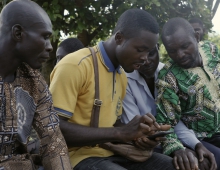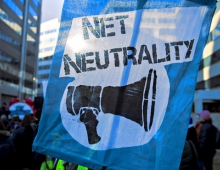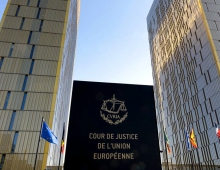
EU Commissioner Calls For Tools That Will Ensure Bloggers' Freedom
The European Union should take effective action to help teach bloggers how to communicate freely and avoid detection, said Neelie Kroes, vice-President of the European Commission responsible for the Digital Agenda.
Speaking at an online free speech conference, Neelie Kroes said citizens living in non-democratic regimes need technological tools, which shield them from indiscriminate surveillance. These tools would help them bypass restrictions on their freedom to communicate. He called the EU to help develop and distribute those tools, in a framework that ensures the legitimacy of the action.
She added that activists may need guidance on the opportunities offered by ICT services like social networks. However they may also be dangerously ignorant of the risks they run when they use ICT: like the risk of being spied on and tracked down, even for sending a simple email or text message.
"We must educate them about the risks and opportunities of ICT. Through material which is simple and informative. Stuff that people without a degree in computer science can understand. In the form of pamphlets, videos, websites, whatever it takes," she said.
To respond to disruptions in ICT services, the EU needs "high-quality intelligence about what is going on "on the ground", in order to "get information quickly, and act on it quickly."
Governments, companies and civil liberties groups are meeting at the Freedom Online conference at the Dutch Foreign Ministry in hopes of creating a coalition of like-minded groups to promote Internet freedoms.
Bloggers and users of social networks played a key role in fomenting the revolutions of the "Arab Spring" ? and took great risks.
On Thursday U.S. Secretary of State Hillary Clinton opened the conference with a call for companies not to sell surveillance tools to authoritarian regimes.
Dutch member of parliament Marietje Schaake echoed Clinton's call, saying that companies "with a reputation to lose" ? such as Google, one of the conference's sponsors - are more likely to heed it.
Schaake also slammed the U.S. for its proposed "Stop Online Piracy Act," which would require U.S. telecommunications companies to block access to foreign-based websites that infringe U.S. copyrights.
This will "give great incentives to governments like China to do the same," she said, blocking political speech they don't approve and arguing that their censorship practices are no different than those in the West.
The Dutch government also pledged euro1 million ($1.3 million) to develop "mesh" networks - networks that use mobile phones to create a backup system to disseminate information when a government tries to block the Internet or social networks.
She added that activists may need guidance on the opportunities offered by ICT services like social networks. However they may also be dangerously ignorant of the risks they run when they use ICT: like the risk of being spied on and tracked down, even for sending a simple email or text message.
"We must educate them about the risks and opportunities of ICT. Through material which is simple and informative. Stuff that people without a degree in computer science can understand. In the form of pamphlets, videos, websites, whatever it takes," she said.
To respond to disruptions in ICT services, the EU needs "high-quality intelligence about what is going on "on the ground", in order to "get information quickly, and act on it quickly."
Governments, companies and civil liberties groups are meeting at the Freedom Online conference at the Dutch Foreign Ministry in hopes of creating a coalition of like-minded groups to promote Internet freedoms.
Bloggers and users of social networks played a key role in fomenting the revolutions of the "Arab Spring" ? and took great risks.
On Thursday U.S. Secretary of State Hillary Clinton opened the conference with a call for companies not to sell surveillance tools to authoritarian regimes.
Dutch member of parliament Marietje Schaake echoed Clinton's call, saying that companies "with a reputation to lose" ? such as Google, one of the conference's sponsors - are more likely to heed it.
Schaake also slammed the U.S. for its proposed "Stop Online Piracy Act," which would require U.S. telecommunications companies to block access to foreign-based websites that infringe U.S. copyrights.
This will "give great incentives to governments like China to do the same," she said, blocking political speech they don't approve and arguing that their censorship practices are no different than those in the West.
The Dutch government also pledged euro1 million ($1.3 million) to develop "mesh" networks - networks that use mobile phones to create a backup system to disseminate information when a government tries to block the Internet or social networks.





















